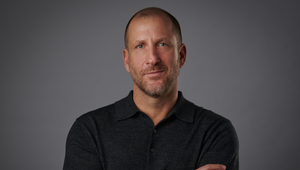
If You Really Want to End Sexual Harassment in the Ad Industry, Listen and Act Now

It was shocking – but sadly not surprising – on Sunday to read the brave accounts from Zoe Scaman and the countless other anonymous women who have experienced appalling examples of misogyny and sexual harassment in our industry.
timeTo’s 2020 research told us that whilst incidences of sexual harassment had declined during the pandemic due to working from home, that it had not gone away. We heard examples of virtual harassment - persistent requests to meet (during lockdowns), high volumes of inappropriate messages and comments on looks. One individual said “Social distancing is one of the best things to have happened. I’ve never felt more comfortable being a young female in a male-dominated environment.” We also heard that there was real fear about returning to the office.
For an industry that purports to be leading the way on diversity, equity and inclusion, how can it be possible that some young industry women would choose lockdown over the workplace?
As a founding partner of timeTo, a WACL member and chief executive of NABS – I have encountered many stories like this, where individuals are targeted and attacked not just because of their gender but because of their race, sexuality, social background or disability, and I have seen the devastating impact this can have on mental health.
We know from the 2019 timeTo research, that whilst 9% of people overall said that they had been harassed at least once, for those who identified as LGBTQ+ the figure was 22%; and for those from Black, Asian and other minoritised ethnic communities, the figure was 24%. Sexual harassment does not exist in singularity, it is entangled with other forms of oppression, and it must stop.
These insights – alongside the experiences shared in Zoe’s recent post – provide our industry with a real opportunity to educate, support and demonstrate to our teams where we stand on all forms of harassment. To truly create an inclusive industry. Luckily for adland, there is support there for you to make real change in your organisations, in the shape of timeTo.
When the Advertising Association, NABS and WACL forged the timeTo campaign in 2018, we said that it was timeTo come together, timeTo change things for the better, timeTo put an end to sexual harassment. That time is now.
We’ve all learnt a lot over the past year, that when it comes to fighting for a more equitable industry – and society – that change does not come quickly or easily. But, there are some steps that we believe we can take together right now to build back better.
- Book your teams onto timeTo’s training. Our training has been developed through an intersectional lens, creating a safe space for teams to understand and explore the reasons why this behaviour happens and give them the confidence to challenge it.
- Join the 283 industry companies who have signed up as Endorsers, embedding the timeTo Code of Conduct into their working practices and creating a zero-tolerance culture on sexual harassment. As an Endorser you’ll be provided with a toolkit, including template policies and onboarding emails for your teams, leadership and HR departments, to get things moving straight away.
- Read the Code of Conduct and Code Addendum. If you are an Endorser, refamiliarise yourself on what you have agreed to by signing up and what your company can do to ensure sexual harassment is not an issue in your workplace.
- Remind your teams that NABS are here for them. Our Advice Line team provide a supportive and confidential ear to anyone who has experienced or witnessed sexual harassment and would like some guidance on how to move forward. Call 0800 707 6607, 9am – 5.30pm, Monday to Friday.
- Create a culture of openness, where those who experience harassment and discrimination feel comfortable in coming forward and reporting.
We’ve learnt that by truly listening; by creating safe and unjudgmental spaces we can make change happen. Everyone has the right to feel safe in the workplace, to feel heard.
I was once asked by a senior leader how they could ensure that they found out about unacceptable behaviour. I said, your people need to know you genuinely want to hear – and will act.
Listen. And Act.













